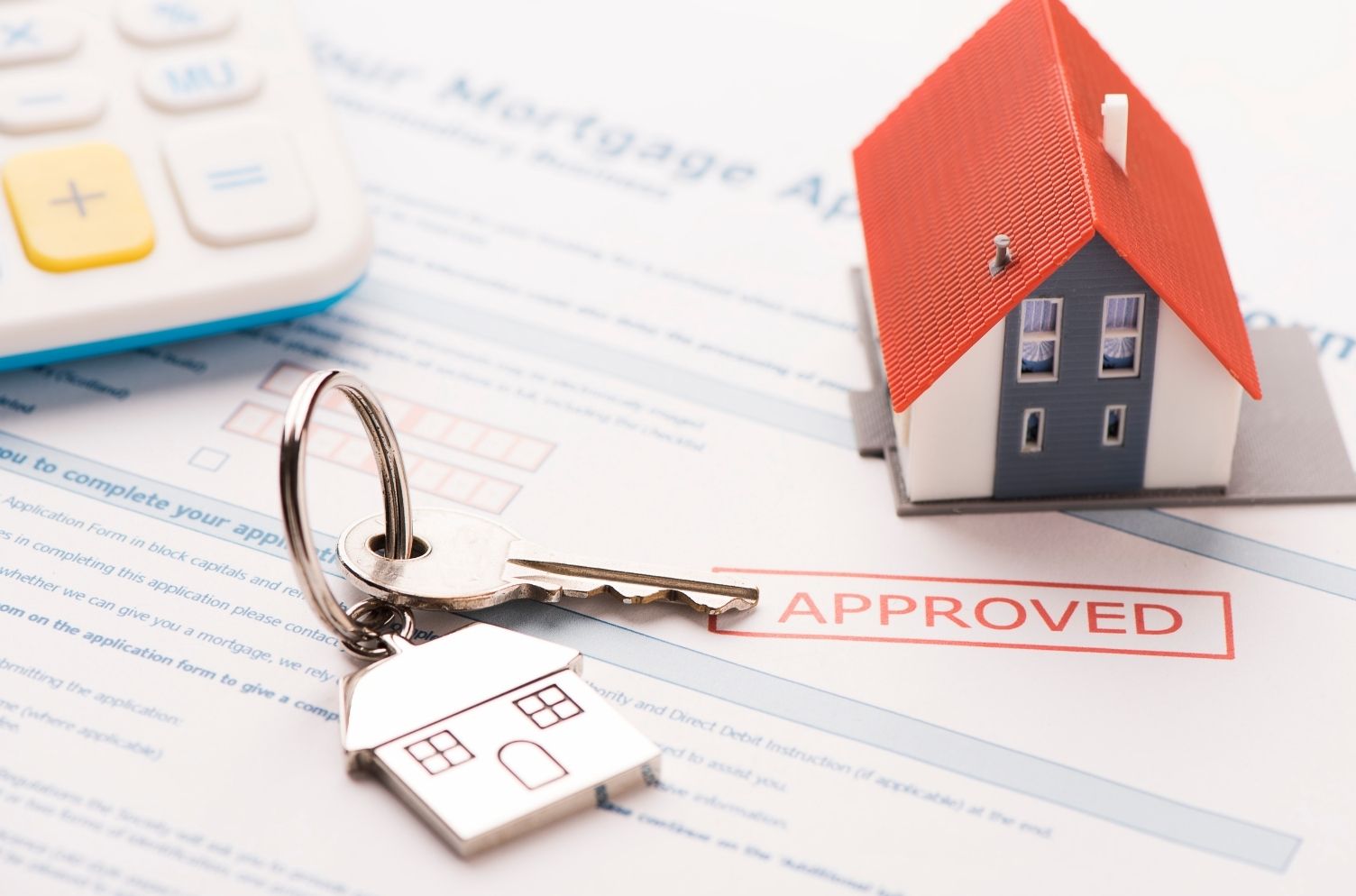Comparing Commercial Mortgages To Other Business Finance Options

Finding the right funding for your business is key. We've learnt that comparing commercial mortgages is vital. Our findings show that interest rates on these loans range from 7% to 12%.
This guide aims to compare them with other financing options, helping you make an informed choice.
Comparison of Commercial Mortgages with Other Business Financing Options
In this part, we'll look at how commercial mortgages stack up against other ways to get money for your business. Think of it as checking out different paths before deciding which one to take on your journey.
Commercial Mortgages
Commercial mortgages help us buy or upgrade our business premises with interest rates from 7% to 12%. We end up paying the loan and extra money based on these rates. These loans usually cover 75% to 80% of the property's value for business use, letting us purchase office buildings or shops.
The repayment period for a commercial mortgage spans from 3 to 25 years, offering more flexibility than other loans that might demand faster paybacks. They also have lower interest rates compared to unsecured loans, which means we can save money in the long term.
"Borrowing with a commercial mortgage often leads to savings over time because of its lower interest rates."
Business Loans
Business loans offer quick cash for a variety of needs, like everyday expenses or seizing new opportunities. These loans typically span 1 to 5 years, providing a shorter repayment period than some alternatives.
Compared to commercial mortgages, business loans have higher interest rates but grant immediate access to funds. The application and approval process is quicker and more straightforward, making them a practical choice for businesses aiming to expand or better manage their finances.
Asset Financing
Asset financing lets us secure loans by using items like vans or machines as collateral. Lenders usually offer us 60% to 90% of the item's value. This approach gives us quick access to cash but comes with the risk of losing these items if payments aren't met.
This form of lending is beneficial for large purchases, allowing us to borrow more at reduced costs. It prevents draining our cash reserves, ensuring we can continue operations while acquiring new equipment or vehicles when necessary.
Key Features of Commercial Mortgages
We cover how much businesses can borrow with commercial mortgages, including loan terms and eligibility. We also explain the costs involved, such as fees. This information is key for those considering a mortgage for their business premises or investment property.
Loan Amounts and Terms
Commercial mortgages offer loan terms from 1 to 25 years, allowing businesses to plan their finances. Businesses can pick fixed or variable mortgage rates. Fixed rates mean payments stay the same.
Variable rates may change with the market.
For commercial mortgages, you can borrow between 50% and 75% of the property's value. Repayment schedules are also flexible. You can choose monthly or quarterly payments to match your cash flow.
Businesses must decide what works best for them in terms of repayment frequency and rate type based on their financial stability and forecasts. This choice helps manage cash flow effectively while ensuring they meet lending criteria set by mortgage lenders under the oversight of regulatory bodies like the Financial Conduct Authority (FCA).
Eligibility Requirements
Before approving a commercial mortgage, we check several factors. The property must generate enough rental income, or your business should be profitable. This assures us that you can manage monthly repayments.
A positive credit history indicates good financial management. We also look for a solid trading history to confirm your business stability.
If the property is for your own business use, we may lend up to 80% of its value. For other properties, the limit is usually 75%. Strong profit margins and stable finances improve your chances of securing a commercial mortgage.
Costs and Fees
Getting a commercial mortgage involves several costs. You need to pay arrangement fees, valuation fees, broker fees, and early repayment charges. Arrangement fees range from 0.5% to 2% of the loan amount.
This can significantly increase the total cost for larger loans.
Valuation fees vary between £500 and £2,000. These cover the cost of assessing the property's value. Broker fees are also part of the expenses, usually sitting at 0.5% to 1% of your loan amount, ensuring you get the best deal available.
Paying off your loan early incurs charges too—between 1% and 5% of the outstanding loan amount.
We aim to make sure you're prepared for these costs when applying for a commercial mortgage.
Applying for a Commercial Mortgage
Applying for a commercial mortgage means preparing correctly and choosing the right lender. Here's what to do:
- Check if you meet the lending criteria.
- Gather necessary paperwork.
- Compare commercial mortgage providers.
- Submit your application confidently.
Checking Eligibility
Before applying for a commercial mortgage, we need to tick off several key points including understanding how affordability is calculated in commercial mortgages.
-
First, checking our credit score is essential as it influences lender confidence.
-
A solid business plan should outline how we will manage monthly repayments.
-
Lenders look at rental or business income to ensure consistent cash flow.
-
The trading history of our business matters; profitability over time is a plus.
-
We must understand the loan-to-value (LTV) ratio; this shows what percentage of the property's value the loan will cover.
-
Property type affects mortgage approval; some properties are riskier than others.
-
Our existing debt level can impact our ability to secure another mortgage.
-
Finally, exploring various commercial mortgage rates and terms helps in finding cost-effective options.
By covering these areas, we align with lender requirements for a commercial mortgage.
Gathering Required Documents
Gathering the right documents is key for a smooth application process. They show lenders we're serious and ready. Here's what we need:
-
Financial statements from the past two to three years. These papers tell the story of our business's cash flow and health.
-
A solid business plan. It lays out our future plans and how we expect to make money. This plan shows lenders we have direction.
-
Proof of identity and address for all major owners. Lenders check this to know who they're dealing with.
-
Details of the commercial property we want to buy or refinance. This includes the price, location, and size.
-
Rent rolls or lease agreements if the property is rented out. This information helps lenders understand our rental income.
-
A valuation report on the property. This tells us and the lender how much the property is worth.
-
Evidence of past property investments, if any, to showcase experience in managing real estate.
-
Bank statements, usually from the last six months, to show our current financial status.
-
Information on existing debts or loans, so lenders see what else we're paying off.
-
Legal documents related to business ownership and structure – proving who owns what part of the business.
Pulling together these documents takes time but pays off by making our application stronger and clearer.
Choosing a Lender
Selecting an appropriate lender is a vital stage in obtaining a commercial mortgage. It can influence both the conditions and expenses for our company. Here's how we approach it:
-
We initiate the process with thorough research. This involves investigating diverse commercial mortgage lenders, comprising banks, building societies, and expert brokers.
-
The principle of interest rates is crucial. We juxtapose them to see which offers the most favourable deal. Occasionally, lower rates are associated with higher fees, so we need to consider this.
-
Consulting a mortgage broker assists us in finding superior deals. They have connections to lenders that we might not be aware of.
-
Assessing the loan-to-value ratio is also significant. This informs us about the percentage of the property's value we can loan against.
-
We scrutinise the conditions of loans meticulously. Extended conditions imply reduced monthly repayments but increased interest in the long run.
-
Fees and expenses are elements we monitor closely. Setup fees, arrangement fees, valuation fees - they tend to accumulate.
-
The reputation of a lender is important to us. We evaluate reviews and seek feedback from other enterprise owners.
-
The flexibility in repayment alternatives is a benefit for any lender. Some propose interest-only periods or permit overpayments devoid of charges.
-
Eligibility criteria are essential. Certain lenders exclusively collaborate with businesses of specific dimensions or in particular sectors.
-
Finally, the quality of customer service is crucial for us. Engaging with a lender that replies promptly and helpfully makes everything easier.
We invest adequate time in these stages, ensuring that we select a lender that matches our best interests regarding our commercial mortgage needs.
Submitting the Application
Getting a commercial mortgage means being thorough and organised. Here's our process:
-
We match our business finances and property value with the lender’s requirements, including checking our credit history.
-
We collect all needed documents early on. This includes proof of income, bank statements, a solid business plan, and property details.
-
We pick a lender whose terms, commercial mortgage rates, and fees suit us best.
-
We carefully fill out the application form, making sure to include every detail required such as personal info, business specifics, and information on the target property.
-
We attach all necessary documents to our application form to avoid any delay.
-
We send everything through the preferred channel of the lender, be it online or by post.
-
Then we wait for the lender’s decision while keeping an eye on incoming communications.
Staying focused on each step ensures we move forward without issues.
Waiting for a Decision
After we apply for a commercial mortgage, the lender starts reviewing our application. This process can take weeks.
-
They evaluate our business plan to understand our company's future.
-
They assess the property's value to ensure it matches the loan amount.
-
Our financials are examined for income, expenses, and other debts.
-
Credit history is reviewed to gauge if we're likely to repay on time.
-
We may receive requests for additional information about our application.
-
Lenders might ask for recent financial statements for their records.
-
The decision timeframe varies with the complexity of our case.
-
Avoiding new large debts during this period helps maintain lender confidence.
-
Continuing to save shows lenders we can manage unexpected costs.
Each step plays a key role in securing a positive answer from the lender.
Comparing Commercial Mortgages to Business Loans
Let's talk about how commercial mortgages stack up against business loans. This comparison is like looking at apples and oranges. Both serve distinct purposes in the financial fruit basket. Here's a neat table to lay it all out.
|
Criteria |
Commercial Mortgages |
Business Loans |
|
Primary Use |
Buying or refinancing property |
Quick cash for various needs |
|
Commitment Period |
Long-term (5 to 30 years) |
Short-term (1 to 5 years) |
|
Interest Rates |
Lower |
Higher |
|
Application Process |
Lengthy and detailed |
Simpler and quicker |
|
Eligibility |
Strict, often needs property as collateral |
More flexible, varies by lender |
In a nutshell, commercial mortgages are a long haul. They suit those eyeing property. They come with lower interest rates but need patience and lots of paperwork. The property you buy is often the security. This means if things go south, the lender might take the property.
Business loans are the go-to for quick funds. They cater to immediate needs. Think stock, paying staff, or a marketing blitz. They are faster to get but cost more over time. The leap is shorter, but the landing—costlier.
Choosing between the two boils down to what you need and when. For property buying, commercial mortgages are your friend. For a quick cash injection, business loans might just save the day.
Comparing Commercial Mortgages to Asset Financing
Alright, let's dive straight into comparing commercial mortgages with asset financing. It's like looking at two different tools for different jobs. Here's a quick rundown in a table format to make it super clear.
|
|
Commercial Mortgages |
Asset Financing |
|
Main Use |
Getting cash using equipment as security |
|
|
Collateral |
The property you're buying |
Equipment or assets you already own |
|
Loan Value |
Typically up to 90% of the property's value |
Between 60% to 90% of the asset's value |
|
Control |
You own the property and can make money from it |
You keep using the equipment, but it must pay back the loan |
|
Risk |
If you can't pay, you lose the property |
If you can't pay, you lose the equipment |
With commercial mortgages, we're talking about taking a big step. You're buying property. This can be a way to grow your business by owning an asset that might increase in value. Plus, you have the chance to make money if you rent it out. The challenge? Mortgages come with checks. You need to show you can pay the loan back. And, it takes time to get everything sorted.
Asset financing is more about short-term needs. Say you own machines or vehicles. You can use these to get a loan quickly. This is handy if you need cash fast and know you can pay it back. It's also less about growing and more about keeping things running smoothly.
Each option has its place. It depends on what you need right now, how much risk you're willing to take, and what your long-term plans are.
Flexibility and Risk Factors
Choosing between a commercial mortgage and asset funding is crucial for our business needs. A commercial mortgage allows us to own property, which we can profit from by renting out.
This option requires keeping up with long-term payments.
On the other hand, asset financing offers quick cash without needing property as security. This option carries the risk of losing assets if we fail to repay the loan. It's vital to consider these choices carefully.
We need to be careful in making finance decisions.
Key Differences Between Commercial and Residential Mortgages
Commercial mortgages are for shops and office buildings, while residential mortgages cover houses and flats. Commercial mortgage rates are higher because these loans are riskier for lenders.
The loan to value ratio is lower in commercial deals, meaning you need a larger deposit.
Repayment terms for commercial mortgages range from 1 to 25 years. To get one, you must present a solid business plan and prove your income through rental earnings or other sources.
This differs from personal home loans that usually require just evidence of salary or savings.
Both types of mortgages serve specific purposes based on the property you aim to buy or refinance.
Benefits of Commercial Mortgages
Choosing a commercial mortgage can improve your financial health. These mortgages often have lower interest rates compared to other funding options.
Long-Term Financial Stability
Planning to acquire a commercial mortgage is indeed an investment for posterity. Such mortgages have a span of 3 to 25 years, enabling the ownership of property instead of mere renting.
They usually cover 70% to 80% of the property's worth, lessening our first lump sum payment. Moreover, the payment of interest on these mortgages can reduce our taxable income. During mortgage repayment, our goal extends beyond owning an asset outright to aspiring for its appreciation over time.
This approach bolsters our financial strength for extended periods.
Our financial foundation solidifies with the move of acquiring property through a commercial mortgage.
Lower Interest Rates Compared to Other Options
Commercial mortgages often have lower interest rates compared to personal loans. This can reduce our monthly repayments. By securing a loan against property, we gain access to these better rates.
This approach is cost-effective for long-term finances. It lowers borrowing costs and lets us put savings into our businesses.
Conclusion
Choosing the right finance option is crucial for businesses. We've examined commercial mortgages, business loans, and asset financing. Each serves a different purpose based on your needs.
If you aim to own property, a commercial mortgage might be more cost-effective in the long run. It's important to match your choice with your business objectives and financial state.
Making the right decision can strengthen your company's foundation for future success.
Related Posts
Ask the Expert
Mortgage Brokers




